It was Christmas, and Victoria Eljach was visiting her family in Colombia. Zika was all anyone talked about on the television news, she said. The virus had by then been carried from Brazil to Colombia — and suspicions were growing that it was causing a horrendous birth defect called microcephaly.
Eljach went home to Houston after the holidays. Zika was making news in the U.S., too, as the Centers for Disease Control and Prevention alerted pregnant women to stay away from Brazil and Colombia. Even women who might become pregnant should consider staying away, the CDC warned.
“Then, two months later, I learned I was pregnant,” Eljach said. “I was very scared.”
Now 22 weeks pregnant, Eljach is thriving. But she’s not relaxed.
“I thought I was going to be safe here in Houston but there’s Zika in Houston,” said Eljach. Just last week, three patients getting pregnancy care at Legacy tested positive for Zika virus. Now they are being monitored closely to see if the virus will affect their babies.
RELATED: Can I ever get pregnant and other Zika questions
So far, all 1,300 known cases of Zika in the continental United States — and all 340 pregnant women affected— are related to travel. Either the women were infected in another country where Zika is spreading, or they were infected by their husbands or partners who had traveled.
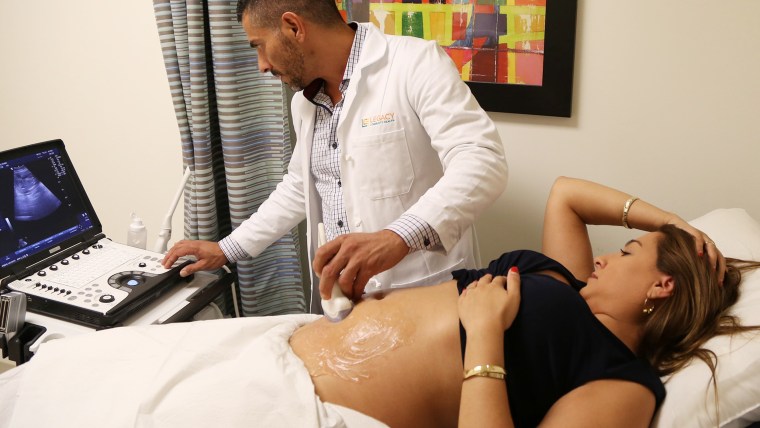
One baby has been born with microcephaly in the Houston area. Nine babies have been born in U.S. states with Zika-linked defects, and another six died, miscarried or were aborted, the CDC says.
"The mother, who traveled from Latin America, was tested for Zika, but had received inconclusive test results. Since the infant received a definitive positive lab result for Zika, it is suspected that the mother probably carried the virus while pregnant, and presumably was infected in Latin America," the county health department said in a statement.
It’s just a matter of time before someone who brings the virus to Houston is bitten by a mosquito and the virus starts to spread locally, experts agree. While no one predicts an all-out epidemic like in Brazil or Puerto Rico, it’s enough to make Eljach and her medical providers nervous.
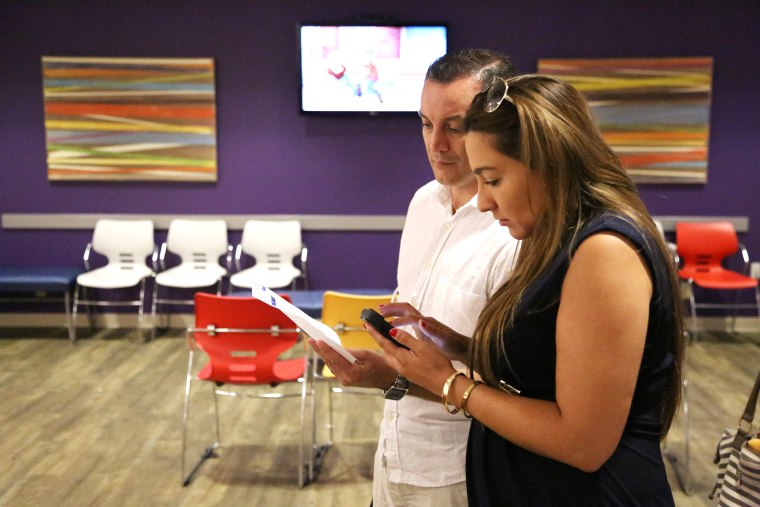
“I thought it was in Central and South America. That’s why I felt safe here,” Eljach said. “But with summer coming, I saw there were some cases here in Houston.”
She made another trip to Bogota after doing some research and seeing that Bogota’s elevation made it an unlikely home for the Aedes aegypti mosquito that spreads Zika. The virus is more common in low-lying, humid, tropical areas — like Houston. At 8,600 feet, Bogota’s higher above sea level than Denver.
RELATED: Bracing for Zika. Meet the mosquito hunters
Fear of 'invisible epidemic of birth defects'
Nonetheless, the trip troubled her doctor Dr. Juan Franco at Legacy Community Health, a network of not-for-profit clinics in the Houston area. Eljach, a behavioral analyst specializing in developmental disorders, had been Franco’s patient for eight years.
He had her tested for possible Zika infection, just to be sure: She was clear.
“We screen every patient who comes through Legacy,” said Franco. “We are testing people who have recent travel [to Zika-affected areas].
No one knows what percentage of women infected with Zika go on to have babies with birth defects. As with other infections that cause birth defects, the most dangerous time appears to be earlier in the pregnancy — when damage to just a few cells has big consequences.
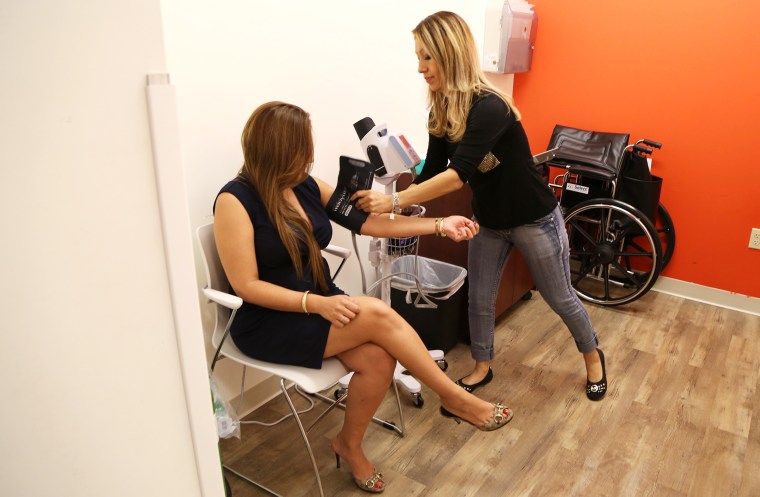
But the evidence is building that infection at any point during a pregnancy can endanger the baby. And women who don’t have symptoms from their Zika infections do not appear to be safe; babies with severe birth defects have been born to women who do not remember any symptoms of a rash or fever.
Since Zika does not appear to cause symptoms in most people it infects, this worries doctors who fear an invisible epidemic of birth defects.
“It’s a delayed catastrophe,” says Dr. Peter Hotez, dean of the school of tropical medicine at Baylor College of Medicine in Houston. “It is every parent’s worst nightmare.”
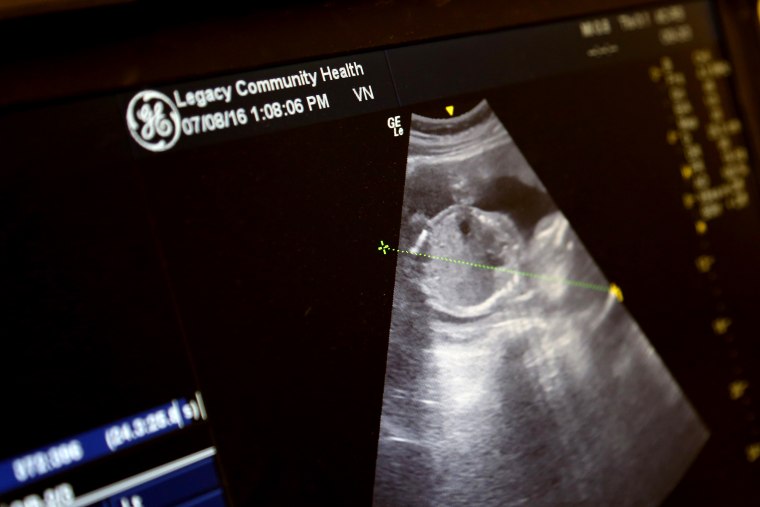
At 36, Eljach is considered at moderately high risk to be having her first baby, anyway. And she’s doubly at risk. Her husband, Jorge Varón, lives in Panama, traveling frequently around the region for his work in the retail industry.
Eljach is worried about sexual transmission of Zika.
“We are sleeping together but nothing is happening,” she said, laughing.
RELATED: Is DEET safe? And other Zika questions
“The other night, my husband came to visit me. We left the balcony door open,” she said. They fell asleep but in the middle of the night she got a rude awakening.
“He heard a mosquito in his ear and he took the OFF and started spraying me all over,” she said.
Eljach’s taking every precaution she can. “I love to go to the pool in the summer but I am scared,” she said. “My doctor tells me to always wear pants and to cover up and to use repellent. I am using OFF every day and I try to stay indoors.”
Zika fears have cramped her style in other ways, also. “I had to cancel some trips to Mexico and Colombia that I had scheduled,” said Eljach, who likes to visit family frequently and who also had hoped to fit in one last Caribbean vacation before she gave birth.
But with the Zika risk so high this summer, Caribbean resorts are off-limits for pregnant women.
'Mosquitoes are everywhere'
Every pregnant woman at Legacy gets a Zika kit: a ziplock bag with a bottle of repellent containing DEET; condoms; and a card with information about how to avoid mosquito bites.
“There are patients who ask us about mosquito repellent. We just assure them it is safe during pregnancy,” Franco said. The CDC says DEET is safe for pregnant women and children alike and is more effective than some “natural” formulations that can irritate the skin.
Franco also tested a woman from El Salvador who did test positive for Zika and whose baby so far is healthy. “The patient came to us at 36 weeks,” Franco said. So far, the news is good.
“She delivered in late May. The baby is doing well,” he said.
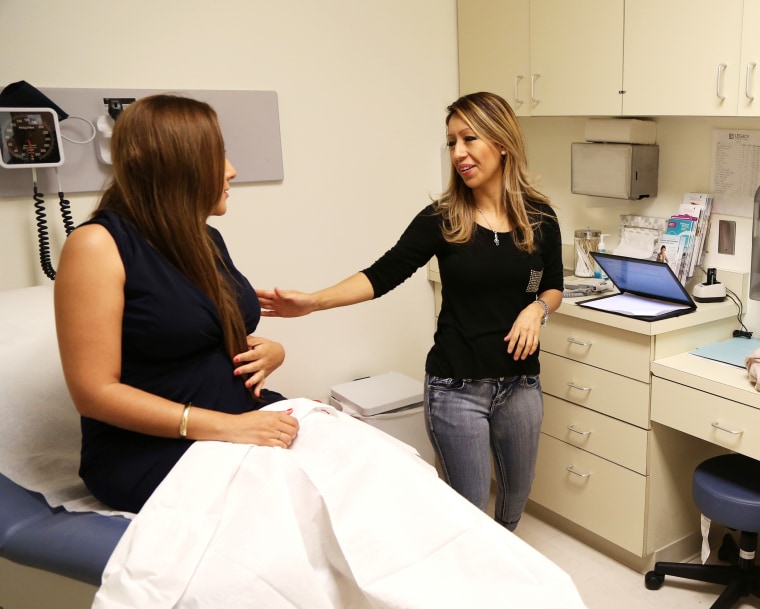
He’s treating a patient from Brazil who had the symptoms of Zika infection and who tested positive for infection at 16 weeks. She’s now 20 weeks pregnant.
“I think it is just a matter of time before we see these numbers increase,” Franco added. “There are lots of women with husbands who travel back and forth.”
And he doesn’t doubt there could be local outbreaks. “Mosquitoes, as we are aware, are everywhere in Houston,” Franco said.
RELATED: The Zika virus budget battle
Dr. Ann Barnes, chief medical officer for Legacy, agrees.
“I think there is significant concern, and justified, on that. Houston is notorious for being a place where there are lots of mosquitoes in summer,” she said.
Excited and concerned
When treating women who have evidence of Zika infection, the team at Legacy will follow the CDC protocols, which include regular ultrasounds to check the baby’s development.
“What we are looking for is any changes in the circumference of the head. We are looking for microcephaly,” Franco said. “When the baby is born, we test the placenta.” If the virus is in the placenta, that indicates it’s also been in the baby’s body and could have done damage.
Not all of Zika’s destruction immediately apparent. Sometimes babies miscarry or die shortly after birth, and some have normal-sized heads but scans indicate extensive brain damage. Some have hearing and vision abnormalities. So all babies born to women who had Zika while pregnant need close scrutiny.
And if there are problems, they could end up being expensive for parents, taxpayers or both.
“It would be very difficult for most of our patients to care for a sick baby. Most are indigent,” Franco said. While Medicaid covers the children, it’s not always easy to find the care. “The problem is finding physicians to care for them,” Franco said.
Eljach had her latest ultrasound just last week, and everything looks fine. The scan confirmed that she is having a boy.
“I am excited but at the same time I am a little concerned,” she said.
There is one area of disagreement — the baby's name.
“I like Santiago. I like Emilio. My husband likes Valentino,” she said, smiling.
Video by NBC News multimedia reporter Jennifer Weiss